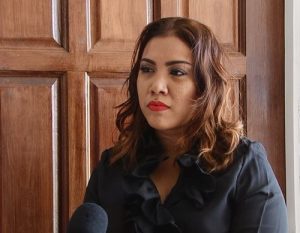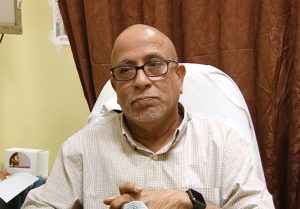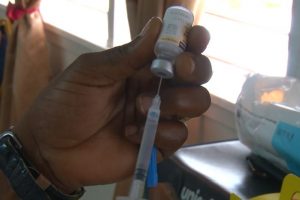By Bibi Khatoon
Niketa Hussain, a Cosmetologist lost her aunt, Jaitoon Hussain to cancer in August 2016, weeks after she was diagnosed with the disease.

“She was very close to me, unfortunately, she was one of the person that didn’t know she had this disease. It was detected very late, so late, it was at Stage Four so there was nothing that we could’ve done,”Niketa told News Room during a recent interview.
Cervical Cancer is listed as the second most prevalent cancer in Guyanese women and often leads to death.
Niketa believes that early detection would have saved the life of her aunt. This view was supported by Golda Clementson, a mother of five who was diagnosed with Stage Two Cervical Cancer in January, 2016.
“Had I not found out when I did, it could have been at an advanced stage,” Golda exclaimed.

Golda, who is now 43-years-old, said she first noticed unusual activities with her menstrual cycle in 2010 and visited a doctor but her tests came out negative and she was advised to do another check in 2015.
However, during that five-year period, she started observed that her menstrual cycle continued for five additional days every month and she would also experience pain during sexual intercourse, but she had no idea that those were signs of Cancer.
“Even though I was expecting Dr. Gobin to tell me something, I was not expecting Cancer. That was nowhere on my mind or list or anything, so after he told me that, I just ask him Doc what is the next step, what I need to do,” the mother of five said.
Having no idea what Cancer really is, Golda pointed out that it is important to be positive and have an open mind. She said “The more you can talk about it, it will bring some release.”
Golda completed her treatment in May 2016, and had her cervix removed to prevent any reappearance of the cancer cells.
Encouraging other persons, Golda emphasized that “there is help and there is hope. Never doubt and tell yourself that if I go and check and find out, is the end. The earlier you find out, is the better for you. I can tell you that now.”

Cervical Cancer is caused by the Human Papilloma Virus (HPV) and according to the HPV Centre, using statistics from 2012, about 161 new cervical cancer cases are diagnosed annually in Guyana.
Dr. Sayed Ghazi, Director of outreaches at the Cancer Institute of Guyana, urges women to visit the health facility and conduct screening.
“Cervical Cancer is a woman disease and they have to understand if they don’t go the doctor, if they don’t get themselves examined or screened, this thing can take your life and having a little discomfort of getting a pap smear done, or examined by a clinician, can save your life,” Dr. Ghazi pointed out.
It is possible to combat cervical cancer from as early as nine years old. The Ministry of Public Health and the Pan-American Health Organisation are currently rolling out a Campaign to vaccinate girls between the ages of 9 and 13 to combat this deadly disease.

So far, the campaign has begun in Public and private schools and will soon be available at community health centres. The officials are looking to target some 36,000 young girls during the campaign and continue making the vaccines available thereafter.
HPV types 16 and 18 are responsible for about 70% of all cervical cancer cases worldwide. HPV vaccines prevent HPV 16 and 18 infections and have the potential to reduce the incidence of cervical and other anogenital cancers.






